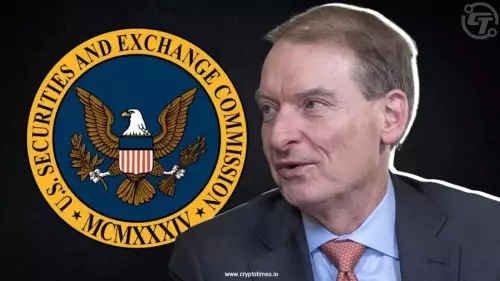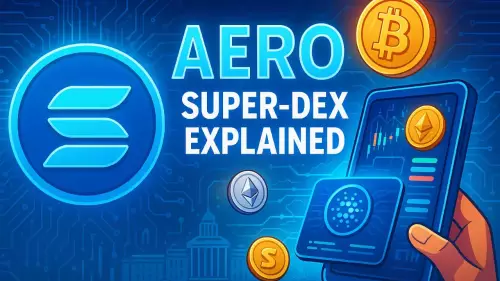 |
|
 |
|
 |
|
 |
|
 |
|
 |
|
 |
|
 |
|
 |
|
 |
|
 |
|
 |
|
 |
|
 |
|
 |
|
Cryptocurrency News Articles
Bybit, Freezes, and Decentralization: A Chilling Look at Blockchain Control
Nov 13, 2025 at 01:55 am
Bybit's Lazarus Security Lab uncovers fund-freezing capabilities in major blockchains, sparking debate about decentralization. Are your assets truly yours?

In the ever-evolving world of blockchain, a new twist has emerged, raising eyebrows and sparking debate: the ability of certain blockchains to freeze or restrict user funds. Bybit's Lazarus Security Lab is leading the charge in uncovering these hidden mechanisms, and the implications for decentralization are significant.
The Freeze Factor: Bybit's Findings
Bybit's Lazarus Security Lab dropped a bombshell, revealing that 16 major blockchains possess built-in fund-freezing capabilities. An additional 19 could implement similar measures with minor tweaks. This means a significant portion of the crypto landscape isn't as decentralized as we might think. The report examined 166 blockchain networks using AI-driven analysis combined with manual review.
These freezing mechanisms come in a few flavors:
- Hardcoded Freezing: Built directly into the chain, like on BNB Chain and VeChain.
- Config File-Based Freezing: Relies on blacklists managed by validators, like on Sui and Aptos.
- On-Chain Smart Contracts: Utilized by chains like HECO.
These aren't just theoretical capabilities. They've been used in response to hacks and exploits, such as when Sui froze $162 million after the Cetus hack and BNB Chain froze assets after a $570 million exploit.
Transparency vs. Decentralization: A Balancing Act
The big question is: are these freezing capabilities a necessary evil, or a betrayal of blockchain's core principles? Bybit's report suggests that blockchain foundations aren't always transparent about these powers, which raises concerns about true decentralization. David Zong, Head of Group Risk Control and Security at Bybit, emphasizes the importance of transparency for building trust.
Armin Reiter from A31 Labs notes that any blockchain *can* implement freezing. The key is whether the community and validators accept it. Bitcoin, for example, is unlikely to implement freezing due to strong community consensus against it.
The DeFi Dilemma: Security vs. Control
This revelation comes at a time when DeFi is facing increasing security threats. The Balancer hack, which siphoned off $129 million, highlights the vulnerabilities that exist. Freezing mechanisms *can* be a safety net, but they also centralize control.
However, centralization isn't always the problem. As seen with the recent USDe and xUSD incidents, the true vulnerability lies in a lack of decentralization and transparency. Centralized entities with opaque data and rules can create more risk than decentralized systems with transparent mechanisms.
Looking Ahead: A Call for Openness
Bybit's Lazarus Security Lab is urging projects to publicly disclose their emergency intervention mechanisms. Transparency is key to building lasting trust among users and institutions as the crypto space matures.
So, what's the takeaway? The discovery of fund-freezing capabilities in major blockchains is a wake-up call. It's a reminder that decentralization isn't a given, and that transparency is crucial. It seems that we need to carefully consider the tradeoffs between security and control.
Think of it this way: your crypto might be more like a bank account than you thought. But hey, at least you're now more informed about where your digital assets are chilling... or potentially being frozen. Stay frosty, crypto fam!
Disclaimer:info@kdj.com
The information provided is not trading advice. kdj.com does not assume any responsibility for any investments made based on the information provided in this article. Cryptocurrencies are highly volatile and it is highly recommended that you invest with caution after thorough research!
If you believe that the content used on this website infringes your copyright, please contact us immediately (info@kdj.com) and we will delete it promptly.
-

-

-

-

-

-

-

- Pi Network, GCV, and the Global Movement: Is It More Than Just Crypto?
- Nov 13, 2025 at 12:24 pm
- Explore Pi Network's journey, Global Consensus Value (GCV), and its evolution into a global movement for a decentralized future. Uncover the vision, challenges, and community driving this innovative project.
-

-































































